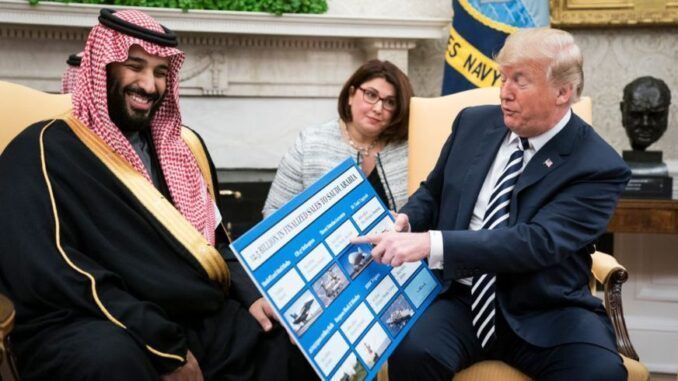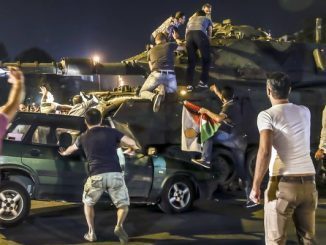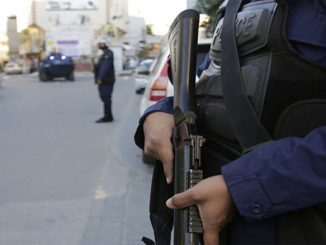
Austerity will force Saudi Arabia to review its military priorities in light of the severe budgetary pressure because of the coronavirus crisis and the low oil prices.
In his article published Stratfor, Ryan Bohl believes that austerity will force Saudi Arabia to review its military priorities, noting that the kingdom faces severe budgetary pressure due to the Corona virus crisis and low oil prices.
Bohl says that it is likely that Saudi Arabia will reduce its arms purchases, and avoid spending cuts that could hinder its internal security or develop the defense sector.
He adds that Saudi Arabia will take care not to cut spending that hinders internal security or hinders the goal of building its domestic defense productive capacity, and that the leadership will standardize its decisions and strive to limit the damage to the goals of “Vision 2030”.
The Stratfor writer notes that Saudi Arabia will monitor the US presidential elections and plan over Washington’s increased scrutiny of its human rights and security policies.
Security and austerity
Speaking about security versus austerity, the writer notes that the kingdom is facing a decline in revenue in the first and second quarters of 2020, and that it may work to reduce or delay the purchase of expensive weapons, as well as adjusting schedules for payments and handing over current arms deals in its military budget .
He also says that Saudi Arabia’s GDP is expected to drop to as much as 3.2% in 2020, and he adds that it has already decided spending cuts of around $ 26.6 billion, that it has tripled the value-added tax three times, and eliminated some mortgage and living allowances.
Even if Saudi Arabia slows down or delays in spending on the defense sector, the writer says the kingdom is likely to continue working toward the goal of the “Vision 2030” of developing an independent weapons industry that can meet 50% of defense needs over the next ten years.
However, Bohl believes that this goal is unlikely to be achieved, given that the domestic arms industry did not meet only 2% of the Kingdom’s defense needs in 2018, but will continue to support state-owned companies such as the General Authority for Military and Military Industries of Saudi Arabia, especially as it employs thousands of citizens.
Arms deals
In his article, Ryan Bohl says Saudi Arabia is likely to avoid major new foreign arms deals, preferring to wait until the best economic conditions allow it to purchase expensive weapons.
Saudi Arabia may also continue to delay payments to existing arms deals, including its 2017 agreement with the United States to purchase weapons worth $ 110 to $ 350 billion by 2027.
The Stratfor article notes that Saudi Arabia has already spent $ 4 billion on six contracts to purchase foreign weapons over the past two years, which is well below the low average of $ 11 billion annually, according to the State Department.
The writer attributes to General Dynamics, a US-based company, that Saudi Arabia is also late in paying about $ 3.4 billion in payments for light armored vehicles, indicating that the kingdom may consider slowing payments to other international contracts outside the United States.
American friendship
In addition to the possible delay in recovering from the consequences of the Corona virus and the low prices for oil, defense development in Saudi Arabia may soon also face the challenge of a less friendly US administration.
Bohl points out that US President Donald Trump’s security relations with Riyadh have been heavily scrutinized in Washington because of the kingdom’s controversial human rights record.
He concludes that if Trump fails in the upcoming presidential election, Saudi Arabia will be less able to rely on US arms sales.



